 Note beforhand: this is basically a personal story based on my own experiences with enlightenment naturalist fundamentalism as a supernaturally minded Christian, but other totalitarian paradigms ( with Christian fundamentalism in all its forms as another good example, modernist ideologies are often completely absolutitist!) can give roughly the same problems as described here. So I think, if you can pierce through my Christian and esotheric lingo here that any person who’s ever gone through a deep paradigm shift or conversion should be able to get something out of this, and recognise the problem of the old obsolete worldview coming back and trying to invade and subjugate their world again. So bear with me, while this post is mostly my story from a supernaturalist Christian POV, I also will try to find a more general outlook on the subject too that might be helpful for people of completely different persuations…
Note beforhand: this is basically a personal story based on my own experiences with enlightenment naturalist fundamentalism as a supernaturally minded Christian, but other totalitarian paradigms ( with Christian fundamentalism in all its forms as another good example, modernist ideologies are often completely absolutitist!) can give roughly the same problems as described here. So I think, if you can pierce through my Christian and esotheric lingo here that any person who’s ever gone through a deep paradigm shift or conversion should be able to get something out of this, and recognise the problem of the old obsolete worldview coming back and trying to invade and subjugate their world again. So bear with me, while this post is mostly my story from a supernaturalist Christian POV, I also will try to find a more general outlook on the subject too that might be helpful for people of completely different persuations…
You’ve all seen my title, which might be one of my weirder and more obscure ones… What on Earth do I mean with a hermetic-sounding title as ‘spiritual warfare against obsolete paradigm fragments’ and why would anyone be interested in it? To explain that I have to tell you a part of my own story but before I start I will give some general notes:
* I use the word paradigm for something like worldview, underlying system of thought through which one sees and interprets the world.
*The paradigm from which I write this myself will be a bit spiritualised, and because it fits my purposes most I might sometimes treat paradigms and thoughtsystems further on as if they were living entities of some sort.(classification somewhere in the order of thoughforms, family of egregores and mass-thoughtforms and probably closely related to illustrous entities as the zeitgeist) You can take that literally if you really want but it works exactly in the same way if you see it just as a psychological tool to visualise some concepts… I’m completely agnostic on this matter actually…
* I will use the word ‘supernatural’ for things relating to both the Divine Uncreated and the spirit world or anything else beyond what the current consensus of science regards as the laws of nature. This is probably because I’m too lazy to find a more accurate word in the lingo of some weird niche, or maybe because I already have enough of that in my text already…
The supernatural paradigm is this the worldview in which the material world is only one dimension of the actual Reality, with other dimensions including a spiritual dimension to the natural world that are out of reach of our natural senses. I use it quite broadly.
Let’s start the story now…
I grew up as a pentecostal kid in a very secular country, with an awareness of what could be called lazily the supernatural world -even if I hadn’t always been given a very balanced understanding of it in that environment- and have been living in that awareness ever since. This doesn’t mean that I’m a great mystic at all, but throughout my life I have always had my encounters with God, answered prayers and very sporadically other things in the invisible world too. I’ve always known on a deeper plane that the rational that there is a whole invisible dimension to Creation, and an even more grand Uncreated dimension that’s intertwined with the created… And I dare say that just being alive affirms this ‘supernatural paradigm’ every day…
I know that I am in a minority with this outlook in a (post-)modern secular society, and I probably lost a lot of readers with that first paragraph alone… These are things one does not talk about. Some people I know would even suspect that my mental health should be checked after reading such things. (You know, believing in imaginary friends is clearly a mental illness…) So would not even be inaccurate to say that I’m ‘in the closet’ most of the time about this part of my person as an intelligent Westerner in a secular world. Always, from the age of a child on, I’ve known that there was no other option but live counter to the dominant paradigm around me. I’ll always be out of the box…
This might not be that unnatural for a pentecostal kid in a very secular post-Catholic world, although I assume other personalities might find other coping mechanisms than I did… I never had much problems having different paradigms next to each other. Being part of a religious minority that’s virtually unknown to the general public can have that effect on you. And here probably also lies the root of why I am incurably postmodern: There wasn’t much option for me with the personality type that I have to let the worldviews exist next to each other in one way, as different pictures describing the same world while focussing on certain things, but sadly enough ignoring/denying other parts of reality too. None of the paradigms will ever give a complete outlook on the world, they are all like small windows on a bigger landscape…
To continue my story: as a teenager my parents became part of a vineyard churchplant -of which I’m still a part- so I always remained connected to the Christian supernatural paradigm through my church, even though it’s generally not the most energetic charismatic churchon the planet… But late in my teenage years and in my twenties I also started opening my world and reading other branches of Christianity, as well as people of other persuations, later including interreligious dialogue with a lot of interesting and very different people.
It was not just books and people, but from the early 2000’s also the internet even exposed me to more different ideas and traditions. And then suddenly I found myself in the middle of the ’emerging church dialogue’, that gave me words to describe that I was indeed ‘postmodern’. But it lacked greatly on other aspects, like the supernatural dimension of this world, and more than before it opened me up for a more ‘liberal’ Christianity that tended (for me) to synchretise with modernist enlightenment materialism and a more naturalist wordview. With exploring the postmodern side of my faith I opened a door in my Christianity for something completely opposed to it but prevalent in some contemporary versions of it.
At the same time I encountered another paradigm that could never be mine, and one that some people clung to in a very totalitarian way that demanded the rejection of all other paradigms. I’d always lived in a world where the supernatural was ignored or even rejected by the standard paradigm, but the atheism I encountered went much further, and was agressive and totalitarian in a way that reminded me of the fundamentalism in my religion that I had distanced myself from long ago. Using ‘science’ and reason in the same way as ‘the bible’ and very weird things called ‘the bible’ that were actually far-strected interpretations of it on were used in religious fundamentalism, there people wanted atheism to be the only option in the world, and regarded anything that could be seen as supernatural or religious as unscientific, irrational and stuff for people of a lower intelligence. (Very French revolution, but without the guillotines?)
I’ve always found it hard to converse with this kind of people for some reason…
This agressive ‘new atheism’ was too far from my mode of being to ever compel me in the least, but there were other ways in which enlightenment reductionism denying my supernaturalist paradigm sneaked into my religious worldview to open the doors for this mode of thinking. Through the emerging church and other more liberal versions of my faith, and certain people around me or on the internet, the ‘supernatural’ dimension became more and more disconnected from my operating worldview… even though the world I lived in was still supernatural in practice. In the end it felt a like being sucked down into a paradigm that was never mine to begin with but actively tried to erase certain dimensions from my world… (I do think I have at certain times spent too much time discussing on fora on the internet where a very agressive version of the new atheist ideology hung as a group spirit, trying to push me into a corner until I’d accept that its worldview is the only possible valid one. This probably put some anchors in me for the thing to get a foothold inside of me…)
Now, I want to be very clear that I surely love science and am often fascinated by its findings, and in between its limits science is possibly one of the most efective systems humans have ever created. Learning about science is one of the things I will never stop to do… I also don’t have a problem with people not sharing my religion or not believing in God… But I do have a problem with reductionism, and people who want a world restricted to what they can understand through ‘science’ -and manipulated by technology- while shutting out everything else… When I read. things (or speak to people) that promote a certain kind of enlightenment-atheist ideology it feels (and this is a weird visualisation probably) like some kind of miasma is sticking to me, trying to get inside of me, numbing some of my unnamed senses and trying to pull me. It’s much more nuanced and less spectacular than what my description probably sounds like when written down like this, but it’s the best way I can describe it.
There is something very disorienting in an having to fight an agressive paradigm that’s actually already obsolete to you but that is very dominant and seems in a sense completely compelling when exposed to a higher dose of it, even though it actually contradicts the very core of your own being. (Bring in narnia-metaphors… drumroll…) The whole thing itself like saying to Mr. Beaver of Narnia that animals will never be able to talk, and insist on a world of non-talking beasts. Or even like the witch with the silver chair, telling the children and the prince that there is no upper world, no sun, no Aslan,.. And so on. It al sounds very ‘reason’able, but if you’d take a step behind and take a deeper view it feels somehow like there is more behind it. The (un)spiritual miasma that sticks to me, and numbs my senses and control what comes in to tha point of only being able to see the world through naturalism/materialism. This is extra weird since that wordview has never been part of my ‘working pantheon of paradigms’ and obsolete to me from the beginning on. Why would it even try to creep in and take over?
So I guess this is where the part of spiritual warfare comes in. No matter if you take this term more literally or as a psychological metaphor, the effect is the same: an invading worldview that you have left behind and don’t want can try to take over your perception of the world, and your modes of thinking. I think it’s important to be aware of such things, to learn to recognise how it happens, and so be able to stop the attacks…
So this was my story, which outlined the problem of spiritual warfare against aggressive paradigm fragments in a very specific casus based on my own experience.What we should do now is look at the problem in more general terms, and at possible solutions.
When it comes to the solution I have less experience in succesful overcoming the problem (I’ve only been understanding the problem in these terms for a few days now) so I will be much shorter, -this post is way too long already anyway-:
I’m not that sure I can tell you the best way to fight invading paradigm fragments, but being aware of them is probably the best first step to start with. It’s always much easier to fight something when you’re aware of it than when it want to take you over while you don’t have a clue that anything is happening…
But I used the metaphor of spiritual warfare. Maybe if we are aware of such things it’s not such a bad idea to visualise them as entities trying to invade your inner world and expel them in the name of Jesus, that’s very effective for Christians. People of other spiritual paths can take their own rituals of banishing or expelling. That’s something that might work for me at least, even though it’s most likely a psychological tool…
(It doesn’t have to be an actual entity to react positively to being sent away in the name of Christ. Sending negative thoughts away in the name of Jesus (or taking them capture in Charismatic lingo) can also be very effective.)
I do think that throughout my text here I already gave the general description of the problem: a paradigm that has been already discarded and has been rendered obsolete, but that nonetheless tries to come back to take over your whole outlook on the world. It could, if it works better for you, also be visualied as a mental computer virus too, that tries to rebuild your whole operating systems from fragments that get inside and reform it according to the will of a very totalitarian tradition.
It is not the case in my example, but if that totalitarian tradition has once been your total worldview the spiritual battle might be a lot harder even. Note that I took a very specific example but that even for me there are other paradigms that try to invade sometimes. I can have the same kind of problems with fragments of other paradigms that make no sense to me at all anymore that come back -the fundie influence on my childhood pentecostalism, the weirdness of Charismatic Christanity- but I rarely encounter those in such a dominant way personally. Another very invasive ideology that seems to want to take over my theology sometimes is a very agressive and totalitarian form of calvinism that is virulent on the internet…
So, for those still with me here: if any of my readers know of another effective way of expelling or ‘banishing’ paradigm-frangments that keep on sticking to you, trying to invade you again while you know that the paradigm is obsolete, please tell me.
If you find that I’m talking absolute nonsense please ignore me, this is probably not meant for you…
peace
Bram


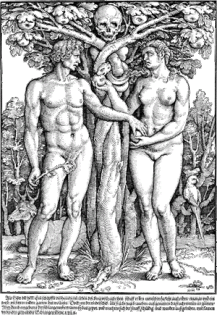
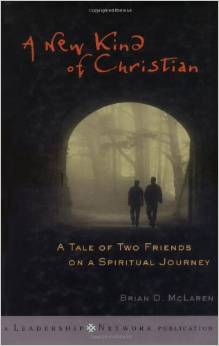





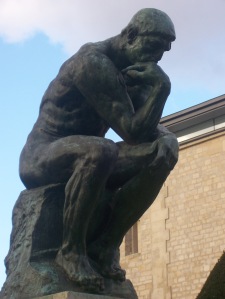 As you can guess from the title in this post we go back to a controversy no-one is asking for and resume my (theoretical) explorations of the occult (unofficially called the
As you can guess from the title in this post we go back to a controversy no-one is asking for and resume my (theoretical) explorations of the occult (unofficially called the 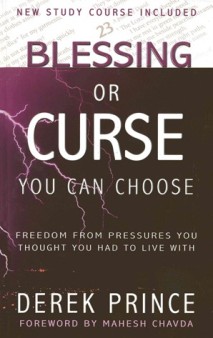

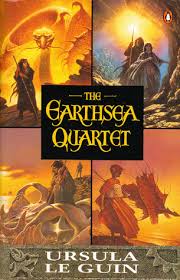 now already, I’m an enthusiastic reader of fantasy and scifi and likewise books, so after re-reading some Narnia, LOTR, and a few Terry Prachett books late last year I’m currently (re)reading Ursula Le Guins Earthsea series. I do say (re)reading because I’ve only been reading the first 4 ones before, and now I’ve also reading the collection of short stories called ‘tales from Earthsea’, and the last novel ‘the other wind’. It’s both interesting and challenging to me that the worldview in those books is sometimes much further away from mine. LOTR, Narnia, and even Harry Potter (indeed,
now already, I’m an enthusiastic reader of fantasy and scifi and likewise books, so after re-reading some Narnia, LOTR, and a few Terry Prachett books late last year I’m currently (re)reading Ursula Le Guins Earthsea series. I do say (re)reading because I’ve only been reading the first 4 ones before, and now I’ve also reading the collection of short stories called ‘tales from Earthsea’, and the last novel ‘the other wind’. It’s both interesting and challenging to me that the worldview in those books is sometimes much further away from mine. LOTR, Narnia, and even Harry Potter (indeed, 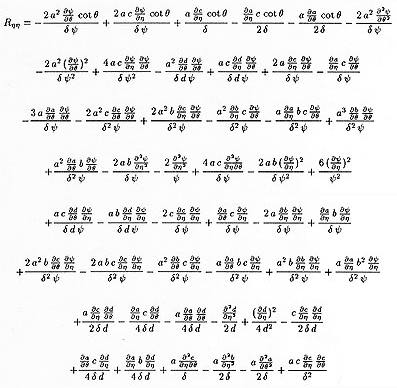 Let me explain what I mean with that: We modern people describe the world in formula and theories, looking for the ‘true name’ of things in the abstract language of mathematical equations and weird symbols, so we can not just explain the world around us, but also have power over it. We can visualise how an atom looks, and split it, either to make energy and electricity, or to make one of the most abominable weapons ever. We can unravel the language of DNA, and not just to find out how certain characteristics are coded in our genes, but also to alter organisms.
Let me explain what I mean with that: We modern people describe the world in formula and theories, looking for the ‘true name’ of things in the abstract language of mathematical equations and weird symbols, so we can not just explain the world around us, but also have power over it. We can visualise how an atom looks, and split it, either to make energy and electricity, or to make one of the most abominable weapons ever. We can unravel the language of DNA, and not just to find out how certain characteristics are coded in our genes, but also to alter organisms.